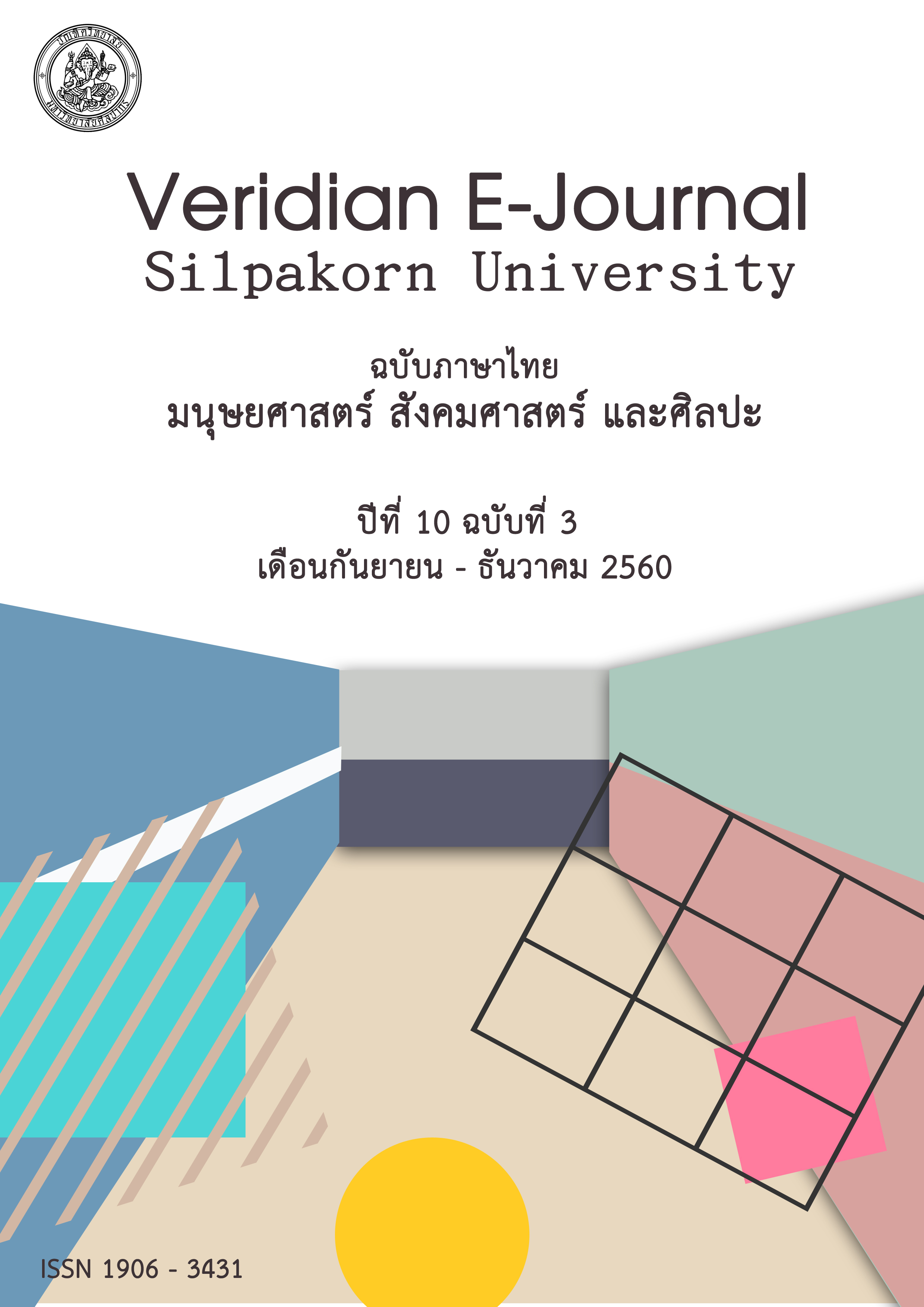ทิศทางการผลิตครูเกษตรของประเทศไทยในช่วง 10 ปี (พ.ศ. 2558-2567)
Main Article Content
บทคัดย่อ
การวิจัยนี้มีวัตถุประสงค์เพื่อศึกษาสภาพปัจจุบันของการผลิตครูเกษตรและสังเคราะห์ทิศทางการผลิตครูเกษตรของประเทศไทยในอนาคต ประยุกต์ใช้เทคนิคเดลฟายในการเก็บข้อมูล ด้วยการวิเคราะห์เอกสารเชิงลึก การสัมภาษณ์เชิงลึกและการสอบถามด้วยแบบสอบถามชนิดมีโครงสร้างกับผู้เชี่ยวชาญที่เกี่ยวข้องกับการผลิตครูเกษตร ได้แก่ ครูเกษตรชำนาญการ ผู้บริหารโรงเรียน ผู้บริหารสำนักงานเขตพื้นที่การศึกษา รองเลขาธิการคุรุสภา รองเลขาธิการสำนักงานคณะกรรมการการอดุมศึกษา อาจารย์ในสถาบันอุดมศึกษาที่ผลิตครูเกษตร ที่เลือกแบบเจาะจงจำนวน 21 คน วิเคราะห์ข้อมูลโดยใช้สถิติพื้นฐานและการวิเคราะห์เนื้อหา
ผลการวิจัย พบว่า สภาพปัจจุบันของการผลิตครูเกษตรสอดคล้องปรัชญาการผลิตครูของแผนการศึกษาแห่งชาติที่เน้นผลิตครูที่มีความสามารถในการคิดวิเคราะห์อย่างเป็นระบบและการประยุกต์ใช้ความรู้ โดยการผลิตมีจำนวนมากกว่าอัตราการบรรจุในสัดส่วนที่ค่อนข้างสูง ปัจจุบันมีมหาวิทยาลัยที่ยังคงผลิตครูเกษตรอยู่จำนวน 4 มหาวิทยาลัย โดยปัจจัยหลักที่ส่งผลต่อการผลิตครูเกษตร คือ นโยบายการศึกษาที่ให้ความสำคัญกับสาระการเรียนรู้หลัก และผู้เรียนในระดับการศึกษาขั้นพื้นฐานมีจำนวนน้อยลง ส่วนทิศทางการผลิตครูเกษตรในอนาคตตามความคิดเห็นของผู้เชี่ยวชาญ พบว่า ปรัชญาการผลิตครูเกษตรมุ่งผลิตครูเกษตรที่มีทักษะการเรียนรู้และค้นพบด้วยตนเอง ศรัทธาในวิชาชีพครู สามารถจัดการเรียนรู้ได้อย่างมีประสิทธิภาพ นโยบายการผลิตครูเกษตร คือ สร้างศรัทธาในวิชาชีพครูเกษตร ปฏิรูปหลักสูตรการผลิตครูเกษตรภายใต้ความร่วมมือของคณะศึกษาศาสตร์และคณะเกษตรศาสตร์ และปรับปรุงคุณภาพอาจารย์ในสถาบันผลิตครูเกษตร หลักสูตรการผลิตครูเกษตรเป็นหลักสูตร 5 ปีต่อเนื่องหรือ 5 ปี 2 ปริญญาที่ผ่านการฝึกประสบการณ์สอนในโรงเรียน 1 ปีการศึกษา รูปแบบการจัดการหลักสูตรแบบเอกย่อย คือ เกษตรทั่วไปและเกษตรเฉพาะสาขาที่สามารถสอนได้ทั้งในโรงเรียนและสถาบันอาชีวเกษตร ทั้งนี้คุณลักษณะครูเกษตรที่สำคัญ คือ ต้องมีความรู้และทักษะทางการเกษตรอย่างลึกซึ้งถูกต้อง มีความสามารถในการออกแบบและจัดกิจกรรมการเรียนรู้อย่างหลากหลาย มีทักษะการวิจัยเพื่อพัฒนาการเรียนการสอน และมีความสามารถทางภาษาและเทคโนโลยีเป็นอย่างดี
The objectives of this research were to study the current situation and analyze trends of pre-service agriculture teacher education of Thailand in the period of 10 years (2015-2024). Applied Delphi techniques to data collection with in-depth document analysis, in-depth interview, and inquiry with structured questionnaire. The keys information are experts in pre-service agriculture teacher education of Thailand; professional teachers, school administrators, directors of the educational service area office, deputy secretary general of secretariat office of the teachers council of Thailand, deputy secretary general of office of the higher education commission, and professional in agriculture teacher institutions, altogether 21 persons. Tools for analyzing the collected information included descriptive statistics and content analysis.
Results of this research revealed that the current condition of agriculture teachers' production is consistent with the teacher production philosophy of the National Education Plan, which focuses on the production of teachers with systematic thinking ability and application of knowledge. Therefore, the agriculture teacher institutions produced so overload. Currently, there are 4 universities that produce agriculture teachers. The main factors that affect the production of agriculture teacher are educational policies that focus on core subjects and the students in basic education is decreasing. The trends of agriculture teachers' production, according to expert opinion, found that the philosophy of agriculture teacher production was to produce agriculture teachers with learning skills, self discovery, faith in the teacher profession, and they can learn effectively. The policy of agriculture teachers is to build faith in the agriculture teachers profession, reform curriculum of agriculture teachers under the cooperation of the Faculty of Education and Faculty of Agriculture, and improve the quality of teachers in the institute of agriculture teachers. The agriculture Teacher Training Program is a 5years course or 5 years 2 degree taught experience teaching in school 1 year. The dual-curriculum management model is general agriculture and specialized agriculture that can be taught both in schools and agricultural institutions. The important feature of agriculture teachers is that they have profound knowledge and agricultural skills, have the ability to design and organize a wide range of learning activities, have research skills to develop learning activities, and their language skills and technology.

